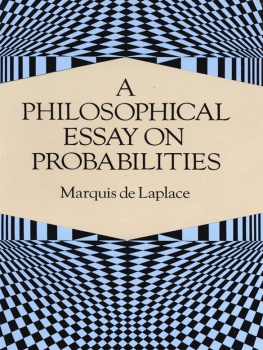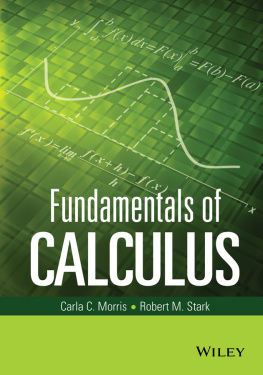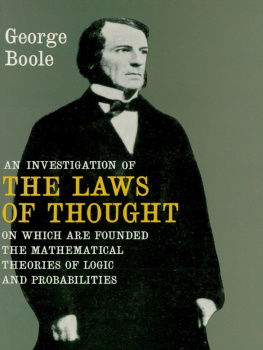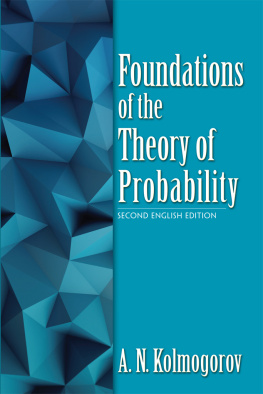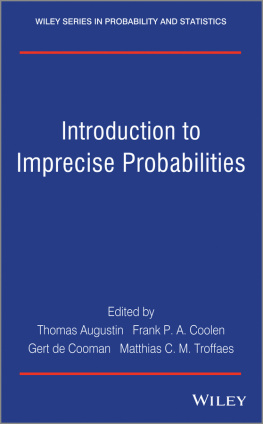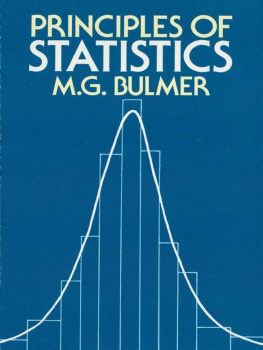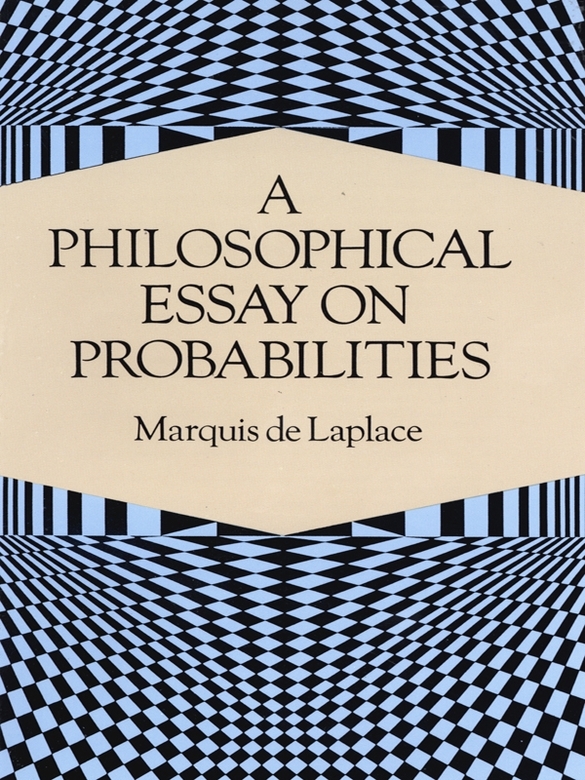CHAPTER I .
INTRODUCTION .
THIS philosophical essay is the development of a lecture on probabilities which I delivered in 1795 to the normal schools whither I had been called, by a decree of the national convention, as professor of mathematics with Lagrange. I have recently published upon the same subject a work entitled The Analytical Theory of Probabilities. I present here without the aid of analysis the principles and general results of this theory, applying them to the most important questions of life, which are indeed for the most part only problems of probability. Strictly speaking it may even be said that nearly all our knowledge is problematical; and in the small number of things which we are able to know with certainty, even in the mathematical sciences themselves, the principal means for ascertaining truth induction. and analogyare based on probabilities; so that the entire system of human knowledge is connected with the theory set forth in this essay. Doubtless it will be seen here with interest that in considering, even in the eternal principles of reason, justice, and humanity, only the favorable chances which are constantly attached to them, there is a great advantage in following these principles and serious inconvenience in departing from them: their chances, like those favorable to lotteries, always end by prevailing in the midst of the vacillations of hazard. I hope that the reflections given in this essay may merit the attention of philosophers and direct it to a subject so worthy of engaging their minds.
CHAPTER II .
CONCERNING PROBABILITY .
ALL events, even those which on account of their insignificance do not seem to follow the great laws of nature, are a result of it just as necessarily as the revolutions of the sun. In ignorance of the ties which unite such events to the entire system of the universe, they have been made to depend upon final causes or upon hazard, according as they occur and are repeated with regularity, or appear without regard to order; but these imaginary causes have gradually receded with the widening bounds of knowledge and disappear entirely before sound philosophy, which sees in them only the expression of our ignorance of the true causes.
Present events are connected with preceding ones by a tie based upon the evident principle that a thing cannot occur without a cause which produces it. This axiom, known by the name of the principle of sufficient reason, extends even to actions which are considered indifferent; the freest will is unable without a determinative motive to give them birth; if we assume two positions with exactly similar circumstances and find that the will is active in the one and inactive in the other, we say that its choice is an effect without a cause. It is then, says Leibnitz, the blind chance of the Epicureans. The contrary opinion is an illusion of the mind, which, losing sight of the evasive reasons of the choice of the will in indifferent things, believes that choice is determined of itself and without motives.
We ought then to regard the present state of the universe as the effect of its anterior state and as the cause of the one which is to follow. Given for one instant an intelligence which could comprehend all the forces by which nature is animated and the respective situation of the beings who compose Itan intelligence sufficiently vast to submit these data to analysisit would embrace in the same formula the movements of the greatest bodies of the universe and those of the lightest atom; for it, nothing would be uncertain and the future, as the past, would be present to its eyes. The human mind offers, in the perfection which it has been able to give to astronomy, a feeble idea of this intelligence. Its discoveries in mechanics and geometry, added to that of universal gravity, have enabled it to comprehend in the same analytical expressions the past and future states of the system of the world. Applying the same method to some other objects of its knowledge, it has succeeded in referring to general laws observed phenomena and in foreseeing those which given circumstances ought to produce. All these efforts in the search for truth tend to lead it back continually to the vast intelligence which we have just mentioned, but from which it will always remain infinitely removed. This tendency, peculiar to the human race, is that which renders it superior to animals; and their progress in this respect distinguishes nations and ages and constitutes their true glory.
Let us recall that formerly, and at no remote epoch, an unusual rain or an extreme drought, a comet having in train a very long tail, the eclipses, the aurora borealis, and in general all the unusual phenomena were regarded as so many signs of celestial wrath. Heaven was invoked in order to avert their baneful influence. No one prayed to have the planets and the sun arrested in their courses: observation had soon made apparent the futility of such prayers. But as these phenomena, occurring and disappearing at long intervals, seemed to oppose the order of nature, it was supposed that Heaven, irritated by the crimes of the earth, had created them to announce its vengeance. Thus the long tail of the comet of 1456 spread terror through Europe, already thrown into consternation by the rapid successes of the Turks, who had just overthrown the Lower Empire. This star after four revolutions has excited among us a very different interest. The knowledge of the laws of the system of the world acquired in the interval had dissipated the fears begotten by the ignorance of the true relationship of man to the universe; and Halley, having recognized the identity of this comet with those of the years 1531, 1607, and 1682, announced its next return for the end of the year 1758 or the beginning of the year 1759. The learned world awaited with impatience this return which was to confirm one of the greatest discoveries that have been made in the sciences, and fulfil the prediction of Seneca when he said, in speaking of the revolutions of those stars which fall from an enormous height: The day will come when, by study pursued through several ages, the things now concealed will appear with evidence; and posterity will be astonished that truths so clear had escaped us. Clairaut then undertook to submit to analysis the perturbations which the comet had experienced by the action of the two great planets, Jupiter and Saturn; after immense calculations he fixed its next passage at the perihelion toward the beginning of April, 1759, which was actually verified by observation. The regularity which astronomy shows us in the movements of the comets doubtless exists also in all phenomena.
The curve described by a simple molecule of air or vapor is regulated in a manner just as certain as the planetary orbits; the only difference between them is that which comes from our ignorance.
Probability is relative, in part to this ignorance, in part to our knowledge. We know that of three or a greater number of events a single one ought to occur; but nothing induces us to believe that one of them will occur rather than the others. In this state of indecision it is impossible for us to announce their occurrence with certainty. It is, however, probable that one of these events, chosen at will, will not occur because we see several cases equally possible which exclude its occurrence, while only a single one favors it.
The theory of chance consists in reducing all the events of the same kind to a certain number of cases equally possible, that is to say, to such as we may be equally undecided about in regard to their existence, and in determining the number of cases favorable to the event whose probability is sought. The ratio of this number to that of all the cases possible is the measure of this probability, which is thus simply a fraction whose numerator is the number of favorable cases and whose denominator is the number of all the cases possible.

